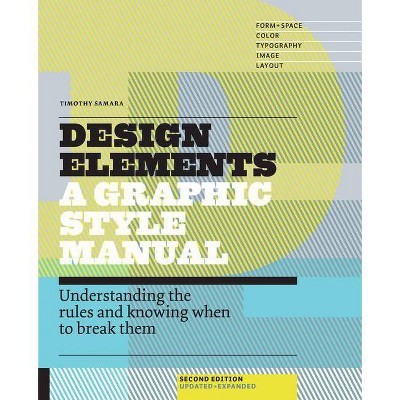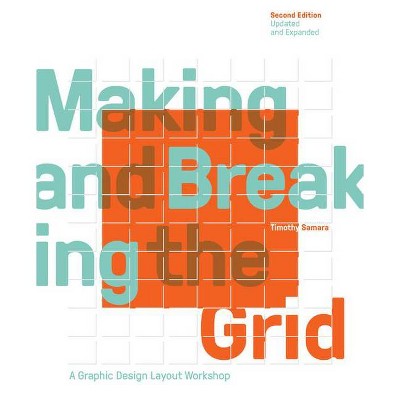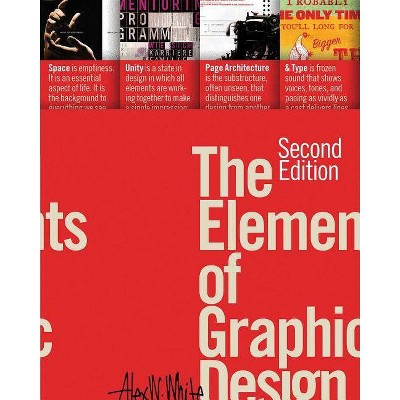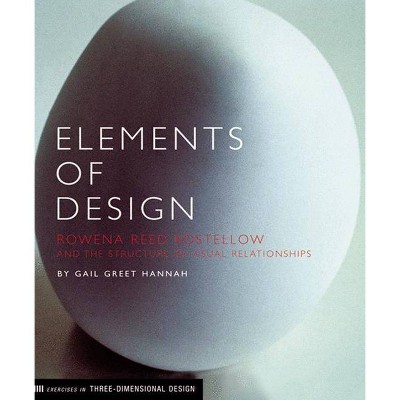Design Elements, Third Edition - by Timothy Samara (Paperback)
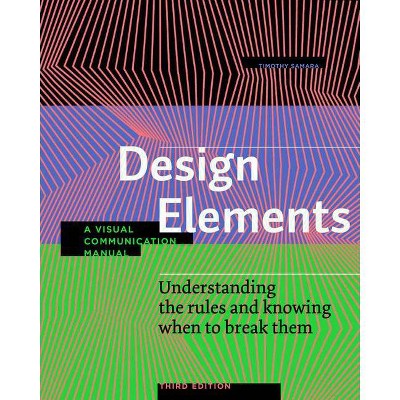
Similar Products
Products of same category from the store
AllProduct info
<p/><br></br><p><b> About the Book </b></p></br></br>"Being a creative designer is often about coming up with unique design solutions. But when the basic rules of design are ignored in an effort to be distinctive, design becomes useless. In language, a departure from the rules is only appreciated as great literature if recognition of the rules underlies the text. Graphic design is a "visual language," and brilliance is recognized in designers whose work seems to break all the rules, yet communicates its messages clearly."--Provided by publisher.<p/><br></br><p><b> Book Synopsis </b></p></br></br><b>A new and updated 3rd Edition of Rockport's best-selling <i>Design Elements</i>, a visually rich and accessible handbook that presents the fundamentals of design in lists, tips, brief text, and examples. With new images and diagrams, the book covers everything from working with grids, color application, typography, and imagery to how to finally put it all together.</b> <p/> Features include: <ul><li>The ultimate primer on graphic design's basic visual toolkit--dot, line, plane, texture, space, and contrast--and how these basics underpin all successful layouts</li><li>An in-depth look at color--from its optical qualities and its effect on type to its potential for communication concepts and emotions</li><li>One of the most thorough compilations of typography concepts to be found--including information on letterform structure and optics, combining typeface styles, the mechanics of detailed text typesetting, and using type as image</li><li>An extensive overview of imagery--the endless possibilities of medium, depiction, abstraction, stylization, and how these all communicate effectively</li><li>Methods for integrating type and image, including a tutorial on using grid systems to structure layouts</li><li>Twenty rules for making good design--and the best ways to break them</li></ul><p>Being a creative designer is often about coming up with unique design solutions. But when the basic rules of design are ignored in an effort to be distinctive, design becomes useless. In language, a departure from the rules is only appreciated as great literature if recognition of the rules underlies the text. Graphic design is a "visual language," and brilliance is recognized in designers whose work seems to break all the rules, yet communicates its messages clearly.</p><p/><br></br><p><b> About the Author </b></p></br></br><p><b>Timothy Samara</b> is a graphic designer based in New York City, where he divides his time between teaching, writing, lecturing, and consulting through STIM Visual Communication. His 18-year career in branding and information design has explored projects in print, packaging, environments, user interface design, and animation. He has been a senior art director at Ruder Finn, New York's largest public relations firm, and senior art director at Pettistudio, a small multidisciplinary design firm. Before relocating to Manhattan, he was principal of Physiologic in Syracuse, located in upstate New York. In 1990, he graduated a Trustee Scholar from the Graphic Design program at the University of the Arts, Philadelphia. Mr. Samara is a faculty member at New York's School of Visual Arts, New York University, Purchase College/SUNY, and The New School, and has published six books on design and typography, all through Rockport Publishers: <i>Making and Breaking the Grid</i>; <i>Typography Workbook</i>; <i>Publication Design Workbook</i>; <i>Type Style Finder</i>; <i>Design Elements, </i> <i>Design Evolution</i>, and, most recently, <i>Letterforms</i>, released in September, 2018. Mr. Samara and his partner live in the Williamsburg neighborhood of Brooklyn.</p>
Price History
Price Archive shows prices from various stores, lets you see history and find the cheapest. There is no actual sale on the website. For all support, inquiry and suggestion messages communication@pricearchive.us
